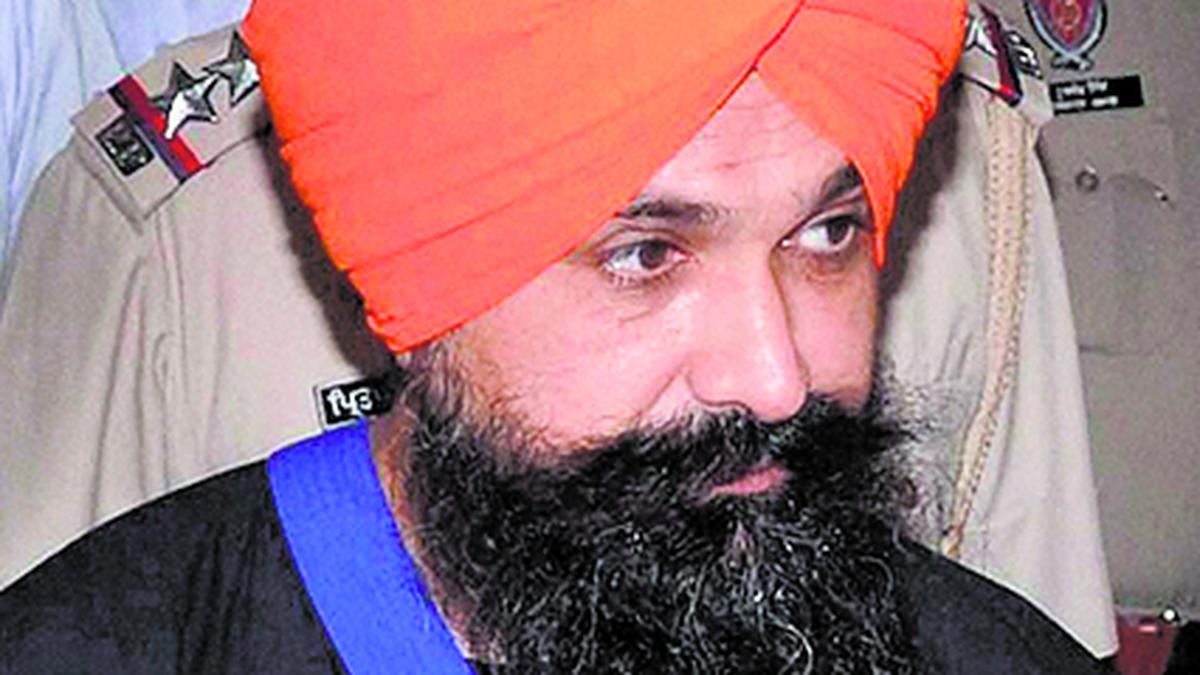 |
|
The Supreme Court of India has issued a significant ruling in the long-standing case of Balwant Singh Rajoana, a death row convict in the assassination of former Punjab Chief Minister Beant Singh. On January 20th, 2025, a special bench of the court set a firm deadline of March 18th for the Union government to finally decide on Rajoana's mercy plea. This decisive action underscores the gravity of the situation and the court's impatience with the protracted delay. The court's statement implicitly warns the government that a failure to act by the deadline will result in the court proceeding to adjudicate the petition on its own merits, potentially leading to a different outcome than the government might prefer. The years-long delay has been a point of contention, with Rajoana's legal team arguing that the indefinite wait constitutes cruel and unusual punishment, warranting a commutation of the sentence. This argument highlights the ethical considerations inherent in the protracted process of capital punishment.
The legal arguments presented before the court further illuminate the complexities of the case. Senior advocate Mukul Rohatgi, representing Rajoana, pleaded for interim relief, emphasizing the 29 years Rajoana has spent imprisoned, 12 of which were in solitary confinement. He argued that the extended delay in processing the mercy plea itself constitutes a form of cruel and unusual punishment, violating fundamental human rights. The prolonged uncertainty surrounding his fate, Mr. Rohatgi contended, is inherently debilitating and warrants a reduction of his sentence to life imprisonment. He further advocated for Rajoana's reintegration into society, a perspective that directly contrasted with the concerns voiced by Solicitor General Tushar Mehta.
Solicitor General Tushar Mehta, representing the Union government, presented a counterargument, emphasizing the sensitivity of the case and the need for a carefully considered decision. He highlighted the fact that Rajoana was found guilty of assassinating a former Chief Minister, a crime with profound political and social implications. The government’s position, therefore, reflects a cautious approach, prioritizing a thorough assessment of all factors involved. The discrepancy between the two legal perspectives underscores the fundamental conflict at the heart of the case: balancing the rights of the convict with the need for justice and public safety. The government’s previous statements regarding potential Khalistani involvement in the assassination further complicate the issue, underscoring the sensitivity and far-reaching consequences of any decision.
The exchange between Mr. Rohatgi and Mr. Mehta also revealed a degree of disagreement over the timeline of the government's deliberation. Mr. Rohatgi claimed that the government had been considering the plea for five years, while Mr. Mehta countered that this was an exaggeration. This difference in perception regarding the duration of the delay further accentuates the perception of inaction on the part of the government, strengthening Rajoana's legal team's arguments about the detrimental effects of prolonged uncertainty. The March 18th deadline, therefore, serves as a critical juncture in the legal battle, forcing a resolution to a case that has lingered for far too long.
This case raises broader questions about the efficacy and ethical implications of the mercy plea process in India. The length of time it takes to process such pleas, often resulting in extended periods of uncertainty for death row convicts, raises concerns about whether the system adequately balances justice with the humane treatment of prisoners. The case also highlights the challenges inherent in balancing competing interests—the rights of the individual facing execution and the public's interest in justice and security—a challenge that courts and governments worldwide grapple with. The Supreme Court's intervention in setting a firm deadline underscores the judicial branch's role in ensuring that due process is followed and that undue delays do not result in a violation of human rights.
The outcome of Rajoana's mercy plea will have significant implications, not only for him but also for the broader discourse surrounding capital punishment in India. A decision either way will set a precedent that will impact future cases, influencing how the courts and the government approach mercy pleas in similar situations. The March 18th deadline, while seemingly a simple procedural matter, represents a crucial moment, potentially marking the end of a protracted legal battle and offering some much-needed clarity in a highly sensitive and emotionally charged case. The Supreme Court’s action underlines the importance of timely justice and its determination to ensure that the process is fair and efficient, even in complex and politically sensitive matters. The court's setting of a definitive deadline indicates its commitment to preventing further delays and safeguarding against potential human rights violations inherent in extended periods on death row.
Source: Supreme Court sets March 18 deadline for Centre’s decision on Rajoana mercy plea
